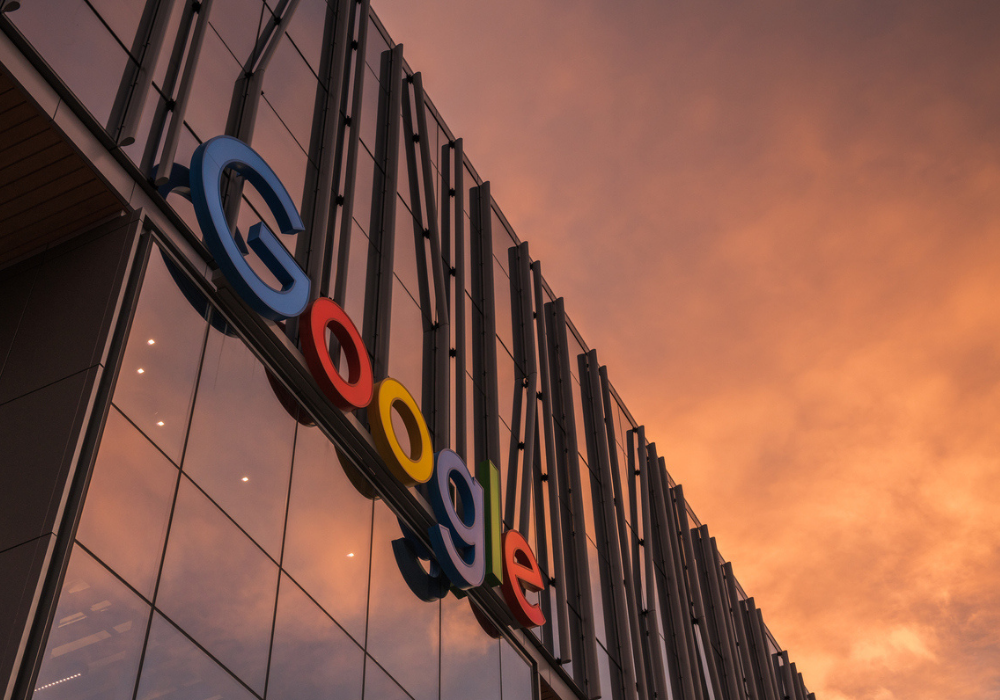We asked the market what they thought about last weeks announcement of Googles intention to delay the phasing out of cookies until 2023. Here’s the best of the responses.
Adam Pace, Digital Consultant at Talon comments:
“I think that an interesting angle here is whether advertisers follow up on their rhetoric around moving to contextual and broadcast/brand advertising.
“There was widespread scepticism around the different solutions proposed by Google – and they were always vague. However, most clients and agencies were firmly of the opinion that this would herald the end of micro targeting (and re-targeting) at scale. Less following people around the web using high levels of frequency with low quality creatives and more broadcast messaging. Bigger and better advertising. It remains to be seen whether this happens.”
Travis Clinger, SVP Addressability and Ecosystem, LiveRamp
“This announcement isn’t a surprise. The combination of recent regulatory investigations, GDPR concerns about FLOCs and the delays in testing Privacy Sandbox proposals suggests that early 2022 would be an unrealistic deadline to withdraw third party cookies from Chrome browsers.
However, the world is already 40% cookieless. So while the deadline for cookie deprecation has extended, urgency persists and the industry should remain committed to moving beyond this identifier. This is simply a delay, not a change in strategy.
There’s no need to wait until cookies disappear to move to a better solution. Marketers and publishers alike should continue, full steam ahead, towards the cookieless future by tapping into a people-based, authenticated solution.”
Remi Cackel, Chief Data Officer at Teads comments:
“While the industry has extra time to prepare for the end of third-party cookies, this is a long journey and the preparation should still continue, we can’t let up. Even with Chrome’s updates being delayed, cookieless data is already a reality with high business impact today. For example over 50% of web traffic in the US is currently cookieless. And the limitations introduced by Apple with IDFA utilization (iOS 14.5) and upcoming IP deprecation (iOS 15) still require an immediate need for privacy-compliant data solutions. This is a positive trend the industry should continue to drive and find solutions for changes in areas such as measurement.”
“FLoCs are only deployed on a really small section of Chrome traffic (-0.5%), which prevents ad-tech players from fully testing it and using it for media activation and campaign optimisation. Without the necessary scale, seeing the true effectiveness of FLoCs was always going to be a challenge.”
“First-party data strategies are viable and strategic in both cookie-based and cookieless environments, but are used for two different use cases. Cookie-based is used for direct messaging and cookieless is used to make informed decisions and to run insights. Going forward, we expect marketers to pursue their first-party data strategies with relevant online and offline data collection. In that regard, first-party data strategies don’t really change.”
Paul Lowrey, Head of Advertising Strategy, Insight and Marketing at Azerion comments:
“One big problem with the end of the third-party cookie was the overall lack of consensus from the industry on how best to replace them. Clients, publishers, and agencies were presented with a complex array of data solutions, with the waters muddied further by Google’s ban on alternate identifiers back in March. Today’s extension at the very least gives some welcome breathing space – and crucially, protection – to those who depend on an open web. The challenge will be to make sure the extension is spent wisely so that an industry (and Google supported) solution benefits all advertising stakeholders, and consumers alike.”
“Many commentators have expressed concerns that Google wasn’t playing by the same rules it forced on the industry. This came to a head when Google announced it would not support alternate identifier solutions and a consequence of that decision meant the industry moved the magnifying glass on FLOC and the Privacy Sandbox. When interrogated, it became clear that it raised more questions than answers, with holes of mistrust appearing.”
“The fact that testing has stalled appears to highlight that Google still doesn’t have the answers to those questions. And there’s surely a whiff of convenience that today’s news has come at a time when the EU recently opened an antitrust probe into Google’s advertising practices.”
“Let’s be clear, the third-party cookieless future is coming eventually and it would be naïve of the industry to settle back into a third-party cookie comfort zone.Regardless of Google’s true intentions, the ban on third-party cookies was never going to remove data from the advertising ecosystem, it was to remove “bad” data, which, let’s be honest, a lot of third-party cookies were. Over the last couple of years, great strides have been made to make first-party data strategies and contextual advertising “better”, and that focus can’t go away. Google is testing the industry’s patience, though, and trust from marketers and tech companies alike is wearing thin. The markets bounced on today’s news but only certainty will make it stay that way.”
Joe Root, CEO & Co-founder at Permutive comments:
“This is just a respite, not a change in direction.”
“There is a heavy fixation on the cookie deprecation date instead of the removal of third-party cookies in Chrome being one milestone among an entire movement towards protecting user privacy. This is regulatory and shows the sheer power of regulators, so rather than focusing on this one deadline, publishers and advertisers need to look at what’s happening at the macro-level and continue to prepare for data deprecation. “
“The chaos in the digital advertising industry, resulting in identity workarounds, is perpetuated by those that don’t have a relationship with the end-user. It raises an open question as to what their role is in a future advertising ecosystem. “
“Privacy pushes everything towards those that have a relationship with the end-user, so from a platform and regulatory perspective, the only sustainable option is publisher first-party data and building those relationships. And, it’s the only data strategy that will enable advertisers to scale across the web. “
“Don’t place your reliance on Google coming out with a solution in all this. Cookie-less solutions that scale and meet regulation are already live, and many advertisers are spending heavily here.”
“It’s why there is a privacy-safe solution in advertisers having closer relationships with publishers. Publishers work across 100% of the web and make 100% of the web addressable, and the data is consented and safe — this is the only stable foundation to build on top of in the adtech ecosystem. Advertisers don’t need to wait for FLoCs; a scalable and privacy-safe solution already exists — and they can test with publishers today.”
“There’s a lot of uncertainty over FLoCs and identity-based solutions. As an advertiser, you need to build your own future-proofed foundation by getting closer to other first-party data owners. Advertiser first-party data alone won’t scale; by working with publishers, you can address audiences at scale while protecting privacy.”
“Advertisers should continue to test Publisher Cohorts — these are cohorts built directly at the source, using publisher first-party data, without the use of individual identifiers. There are already billions of ad impressions being traded every single month on Publisher Cohorts. “
Aaron McKee, CTO at Blis comments:
“This is a massive turnaround from Google, but there have been inklings of it emerging over the past few weeks with their statements about following the guidance of the CMA. With Google increasingly under the microscope for anti-competitive behaviours, perhaps they decided this was a risk-too-far. The additional two years, including the late 2022 phasing, is more of a ‘stay of execution’ than a true respite. Marketers and the whole industry will face another two years of limbo with significant uncertainty over what comes next and how viable it’ll be. It’s becoming more clear, however, that Google shouldn’t be unilaterally defining the tech to replace third-party cookies. And the industry still needs to be readying for this privacy-first world that is becoming more of a reality by the day and coming together to create viable solutions that put the consumer first.”
“FLoC was always going to be hard for a few key reasons. Firstly, t’s one-size-fits-all taxonomy isn’t rich enough for the industry. Second, with enough ‘interest identifiers’, it’s possible to de-anonymize the data, which defeats the entire purpose of being privacy centric. Lastly, the campaign performance of rigid and limited taxonomies like this is not meeting the industry’s expectations.”
“The truth about most third-party data in the programmatic ecosystem is that it’s not fit for purpose. With first-party data, marketers can understand the provenance and quality of what they’re using. This is essential to get good results and a good understanding of audiences. Where first-party data struggles has often been due to limited scale. This can be overcome by intelligently combining different sets of first-party data, such as location, purchase and brand affinity data, for example, to form an integrated, trusted view of audiences. Critically, with first-party data, marketers have better visibility and control over consumers’ consent. Although Google may have given third-party data a lifeline, regulators have not, and we expect to see significant additions to privacy regulations worldwide over the next few years. First-party data remains a critical asset to help drive strong performance.”
Amanda Tan, Senior Director of Product Management at Xandr comments:
“As technology platforms and facilitators of digital advertising transactions, we have a responsibility to contribute to a more healthy ecosystem built on best practices, collaboration and trusted, secure user experiences. The extended timeline gives the industry an opportunity to more thoroughly and calmly consider approaches to addressable advertising. There are various questions about Google’s proposed solutions, concerning feasibility and privacy, that still need to be answered. Rushing any solution that may not address consumer concerns around privacy would be no better than the third-party cookie status quo.”










